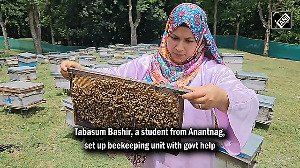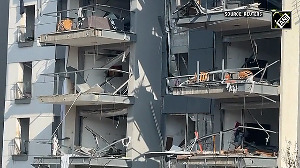Expressing deep disappointment over the fact that Tehran is not meeting its international obligations on the nuclear weapons issue, the United States on Thursday said that the ball is in the Iranian court on any bilateral direct talks with it.
"The ball is in the Iranians' own court. The burden of these sanctions could be eased if they made a decision to engage with us substantively. We've always said that action on the Iranian side would be matched by action on our side, so it's really up to Iran to engage if it wants to see sanctions eased," the State Department spokesperson Victoria Nuland told reporters at her daily news conference.
Responding to a question on the recent US offer of bilateral consultations with Iran, she said it is up to Tehran to decide on it.
"When (US) Vice President (Joe) Biden was in Munich, he made clear that, in the context of the P5-plus-one process, including the upcoming talks in Almaty, that we would be open to consulting with the Iranians bilaterally. They've obviously got to make their own decisions how they want to proceed within the P5-plus-one context," she said.
"What I would certainly say is that we are, very much hoping that when we have this opportunity in a couple of weeks that the Iranians will come prepared to discuss real substance.
"Whether they'd prefer to do with all of us in the room, and an opportunity to see us bilaterally, we're open to whatever can take this forward. What's most important is that they come prepared to really engage on the substance," the US official said.
Nuland said the US and its international partners have made an offer to engage.
"We have had three rounds of talks already. This will be the fourth one (in Almaty). We've been disappointed that those have not yet resulted in real, concrete progress," she said.
"We've also said that in the absence of progress, in the absence of movement, we would continue to ratchet up the international pressure. So as long as Iran fails to address the concerns of the international community, we're going to have to continue to increase the pressure and isolate Iran internationally," the US official said.
"So this is really a choice that Iran's leaders can make. They can have a better path for their people. But they've got to make the choice to come clean and answer the international community's concerns about their nuclear program, and that has yet to happen. We'll have another opportunity for them to do that in Almaty," Nuland added.








